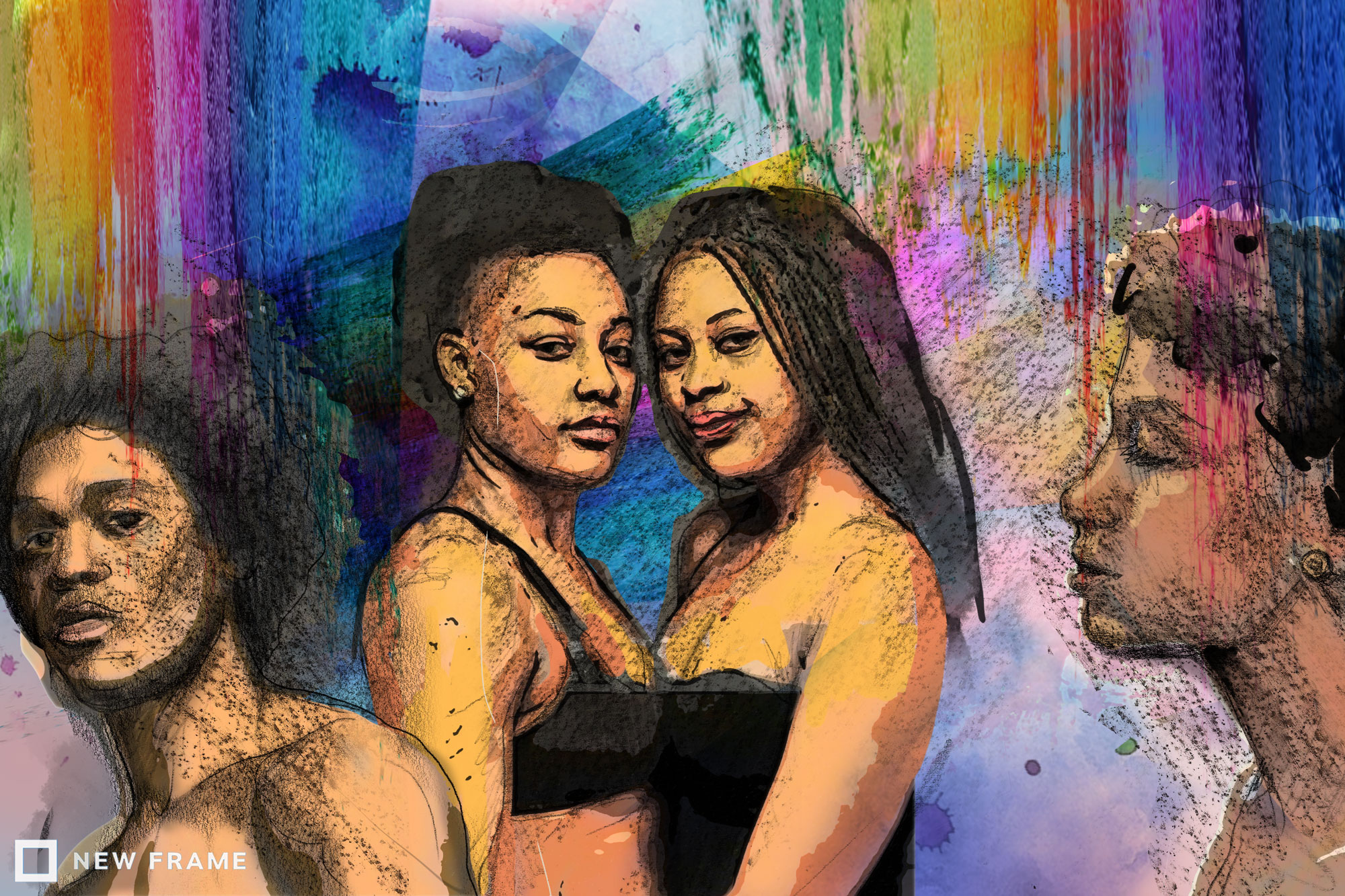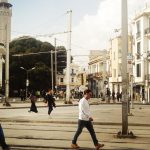One queer night in Accra
Queer people in Ghana come up against religious conservatism every day. For one night a month, Yolo Lounge gives them a place to let down their guard and feel a sense of belonging.
Author:
13 March 2020

Accra is one of those places where you can’t swing a rosary without it hitting a pop-up, prosperity-promising Pentecostal place of prayer. It is, like the rest of Ghana, a deeply religious place.
Businesses carry names such as God is One Special Food Joint and Christ is the Answer Boutique. There’s the odd Holy Trinity Guesthouse, God’s Time is Best Cafe and God With Us Professional Nails. Billboards and posters beseech people to “Come back to Jesus”.
“People here like saying that because we are so religious, all Ghanaians are going to heaven,” an LGBTQIA+ activist tells me wryly.
If Ghanaian religious conservatives are to be believed, though, the saying would instead go something along the lines of “all Ghanaians, except queer folk”.
Criminalised in a conservative context
A 2018 Human Rights Watch report found that “the combination of the criminalisation of adult consensual same-sex conduct [under Section 104 of the country’s Penal Code] and the profoundly religious and socially conservative Ghanaian context has an insidious effect on individual self-expression.
“All the interviewees [for the report] said that they either felt they had little choice but to adopt self-censoring behaviour, or worse, deny their sexual orientation or gender identity to avoid suspicion by family members and the communities in which they live,” it says.
Related article:
In a defiant take-your-hate-and-shove-it move, a group of young queer activists came together to put on monthly social events aimed at the sprawling capital city’s queer communities. Formed two years ago, the Yolo Lounge collective is made up of Moore, Cherry, Rash Berry and Nana (the nicknames by which they prefer to be known).
With social spaces for queer folk in Accra being very rare, the events offer a much-needed space for communing. “Religion is the biggest stumbling block to us having our rights. We have to create spaces for visibility, for people to know we exist,” says 23-year-old Moore.
It seems to be working. On a Saturday evening at a poolside lounge and bar in the city, the queer folk attending the collective’s Colour Your Space party are making themselves very, very visible.
Related article:
Sasso (gay boys) don rainbow-coloured tote bags and beautiful, big-bottommed supi (lesbians) rocking afros and bikinis frolic in the water, cocktails in hand. Infectious laughter fills the air as the latest gossip is exchanged and outfits appraised.
“It’s a pool party and you are wearing Balenciaga?” someone quips with mock derision.
An impromptu “skills-building” session takes place when someone bemoans, “I’d love to twerk, but I don’t have a butt.”
“Yes, you can. Just watch me … watch me go dooown,” comes the mischievous reply, followed by some feverish underwater twerking.
Every now and then, hands are raised aloft in unison as hips gyrate to the booming beats of P-Square, Nicki Minaj and Rihanna. The celebratory atmosphere feels like one giant collective sigh of relief.
Vehement opposition
The country’s LGBTQIA+ communities have once again been feeling the sting of religious conservatism, following the recent announcement that the Pan Africa International Lesbian, Gay, Bisexual, Trans and Intersex Association will host a conference in Accra in July. The gathering is the first of its kind for West Africa and Ghana’s conservatives and religious leaders are displeased.
“They are … insulting us,” said Moses Foh-Amoaning, executive director of the National Coalition for Proper Human Sexual Rights and Family Values.
Ashanti regional chief imam Sheihk Muumin Abdul Haroun took it up a notch during a radio interview, describing queerness as an “evil that must not be countenanced in any way because it is despised by God.
“Wallahi tallahi [I swear] we will not agree. We Muslims, Christians and the traditional religion will all rise up. We will not allow them to even step foot here and not even the government can stand in our way. The country does not belong to them. It belongs to us, so we decide who does what here,” he told GhanaWeb.
Related article:
For Yolo Lounge, the monthly queer space is essential to push back against intolerance while also making queer folk feel less isolated. “The one thing we want to achieve with these events is to make queer people here in Ghana see they are not alone. That they have a bigger family out there. That is very important to us,” says Moore.
“And when I see the community like this, I see so much life in them. Because, you know, every part of our daily lives is being restricted. So in a space where they have the opportunity to be themselves, you see so much life in them.”
‘A sense of belonging’
“Last night, I actually felt like I had people like me around me. I felt safe in there. And a sense of belonging. It was just filled with love, happiness and so much fun,” says Michael*, a trans man, the day after the event.
“Such things are very important in our community, because people fight depression day in and day out. And if they should attend gatherings like this, I know it will reduce these depressions and things. Even for me, before I left the house yesterday, I was not happy. I was down. But when I got there and I saw how everyone was, I felt some joy. I just became happy.”
Ayisha*, a young queer activist, echoes Michael’s sentiments. “Yesterday’s event was amazing. I had mad fun. You know, getting to meet the community and feeling like I belong. People were laughing and hugging… It was heartwarming.
“You know,” she adds, “so often when you are in your shell, you feel there are no such people out there. But when you attend such an event, you feel like, okay, I am not alone in this. I have a whole community out there who will support me. And for us here, that is very, very important.”
*Not their real names



